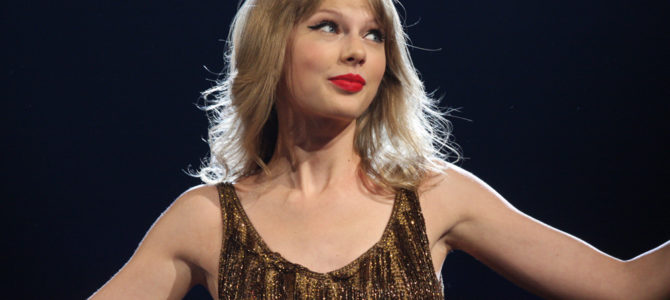
On the occasion of Taylor Swift’s endorsement of Tennessee Senate candidate Phil Bredesen over his Republican opponent Marsha Blackburn, it’s as good a time as any to remember that if celebrity endorsements were dealbreakers, Hillary Clinton would have won. And so would have every high-profile Democratic candidate.
We would live in a progressive utopia. “Fight Song” would the national anthem. Kale would be free. Gwyneth Paltrow would be secretary of Health and Human Services.
That’s not to say these endorsements have no effects on electoral outcomes at all. Swift, for instance, has 112 million followers on Instagram, where she announced her support for Bredesen. But the major effect of her post may really be as limited as convincing some extra Democratic voters it’s worth going to the polls in November, rather than pulling support away from Blackburn or persuading a meaningful chunk of undecided Tennessee independents in his favor.
It’s all hard to quantify, and I’m sure people who vote based on celebrity endorsements exist in some small number. But endorsements are not nearly the most powerful weapon of cultural influence in a celebrity’s toolbox.
Jennifer Aniston has much more power to inspire haircuts than votes. Swift had a big hand in opening Nashville to its poppiest wave of pop country ever, further steering the genre away from its traditional character and themes. Celebrities shape our culture through their art, not their endorsements.
Think of “Will and Grace.” The sitcom was designed primarily as a vehicle for laughs (and ad money). But people who came for the comedy also left with a subtle cultural message, which ultimately had political implications. “Modern Family” has probably had a similar effect. The “Roseanne” reboot was never going to help Donald Trump get re-elected. The show’s power to shape culture lay in its depiction of a struggling middle-class family grappling with everything from surrogacy to health care to safe gun ownership.
To be clear, misinformation— or misleading information— spread by celebrities like Swift can pack a punch. The post in which she endorsed Bredesen could have been written by Democratic operatives. Over the past several weeks, celebrities have flooded the zone with content presuming new Supreme Court Justice Brett Kavanaugh’s guilt. Taken all together, their monolithic anti-conservatism feeds a larger narrative, and obviously affects public opinion (although to what extent would be very difficult to quantify).
But Swift’s support for Bredesen was, perhaps, the least interesting part of her post. She announced the endorsement in nearly 400 words (and three emojis) beneath a blurry black-and-white Polaroid of herself, sitting on a bed, staring shyly at the lens. Those 400 words were used mostly to explain why Swift believes Blackburn should be defeated, rather than why Bredesen should succeed.
“I always have and always will cast my vote based on which candidate will protect and fight for the human rights I believe we all deserve in this country,” she wrote. Her entire caption touched on only three issues: gay rights, and sexual and racial equality. “I cannot vote for someone who will not be willing to fight for dignity for ALL Americans, no matter their skin color, gender or who they love,” Swift said.
That post won’t do much to help Bredesen win. In fact, a good argument could be made that it may hurt him. What it will do, however, is continue persuading young fans that conservative policy stances undermine “human rights,” and that it’s uncool to affiliate with them.
Even so, Swift’s music will still carry more cultural weight than her politics. Many on the left know that because they’ve spent years freaking out about her supposedly anti-feminist messages.
So don’t worry so much about who Taylor Swift endorses. Worry about what she endorses in her work.









